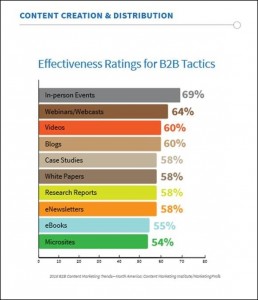On-fire employees—the kind you’re perpetually attempting to hire, develop, and retain—need some latitude to make decisions in the workplace. The companies that are known for being the best places to work in their respective industries train, trust and empower their people to think and act on their own.
In its 2014 Employee Satisfaction and Job Engagement survey, the Society for Human Resource Management found that 47 percent of employees feel that autonomy and independence contribute greatly to job satisfaction. Put another way, roughly half of your workforce has dreams of being their own boss. Micromanage them, and they’re going to disengage, underperform, and likely quit on you.
To some employees, autonomy means setting their own hours, while others may see it as the freedom to perform a task their own way—to decide what they do and how and when they do it. But whatever it means to the people in your organization, this is one intangible that’s too important to leave to chance.
Here is a 4-step approach for building a culture of autonomy:

1. Hire Talented People of High Character: Trust is the foundation of autonomy. So, while you want talented people on your team, if you’re forced to choose between someone who has the skills and someone you’re certain you can trust, choose the latter. Go to great lengths in the hiring process to make certain you’re bringing on people who have unquestionable ethics and character.
2. Clarify Goals and Objectives: Cultures that promote autonomy need employees to work toward targeted, concrete objectives—priorities and deadlines set by their manager. Think of it like establishing the rules of the game before the players take the field. The employees have the opportunity to use their strategic skills and creativity to score more points, but they must know what victory looks like.
3. Train Process and Procedure: The confidence to correctly make difficult decisions stems from the training an employee receives. That’s why great companies are relentless in their training processes. The Container Store ensures that all new hires receive hundreds of hours of training before they ever set foot on the sales floor. At Marriott Hotels, every employee is cross-trained to do just about any job in the hotel just in case they need to fill in for someone at a moment’s notice. At Wegmans, the deli worker can tell you the reason that a particular type of prosciutto costs $ 90 per pound is that it came from an Iberian pig that was hand-fed acorns from an organic forest in Brazil. Great companies know that training doesn’t just make a difference; it IS the difference.
4. Empower Your People: The key to ‘letting go’ is to begin empowering people to make small decisions and work their way up. Use those occasions when your employees approach you for help as opportunities to empower them to make the decision.
We’re out of printing paper? Here’s the number for the supply company. Can you order 50 boxes?
The new hire needs to learn the system. Why don’t you spend the afternoon walking him through it?
The customer wasn’t happy with the food? Next time that happens, use your judgment and decide if you should give her a discount.
The idea is to trust them make a decision and encourage them regardless of how it plays out. However, be sure to hold them accountable for the outcomes as it will motivate them to carefully think things through and take responsibility for the results. That’s essential for building leadership skills.
Evaluate: In the end, the results will always speak for themselves. If the employee demonstrates the ability to make good decisions, they should be granted more trust and more independent decision-making latitude. But if things go awry, take it as a sign that they need more support from you. And scolding them for a bad result or micromanaging them to the ‘inth degree is not what is implied by the term support. It simply means that they may need a more clearly defined goal, more training, or even more confidence. And that will come from your trusting them again.
(351)
Report Post






